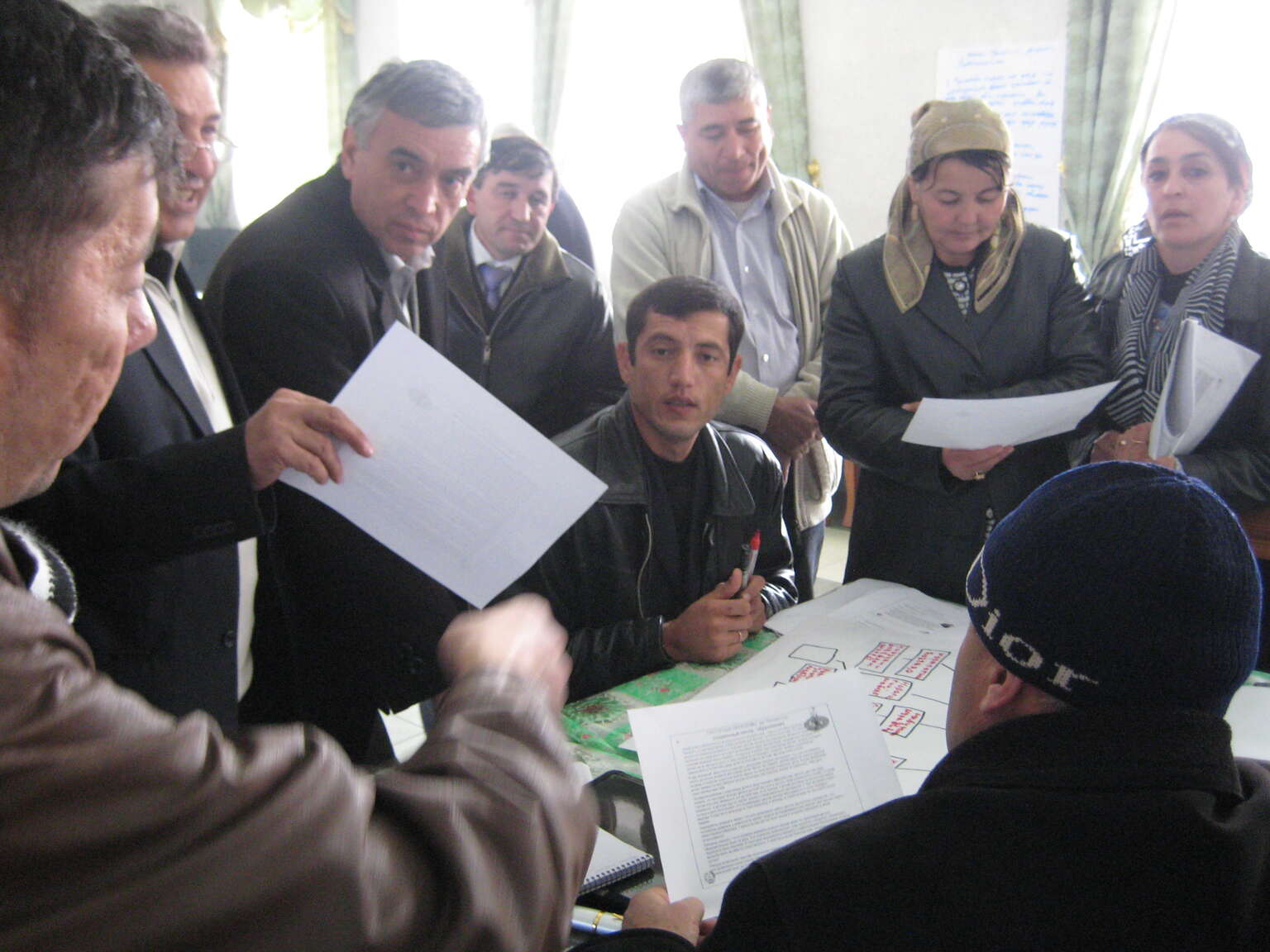
Democratic governance
Within the last decades good governance is recognised as a central challenge in development. There is a growing demand for transformative strategies beyond formal democratic processes. Recent research and practice suggest a need to work on both sides of the governance equilibrium, with participating and demanding citizenry as well as responsive and effective government. Although the challenges of democratic transition are similar, the means of achieving it varies across the countries. Appropriateness and a local origin of proposed solutions is the key to sustainability. The largest potential for democratisation lies at the local level where concerns of the people are linked most closely to those of the state.
Decentralisation
Efforts in building good governance are meaningful when accompanied by a democratic decentralisation process that includes devolution of political powers, functional or administrative de-concentration and rearrangement of inter- government financial relations in support of the above. Benefits of decentralisation, such as decision-making efficiency, effective resources allocation and mobilisation, greater citizen participation, government accountability and responsiveness become obvious where they match appropriate institutional capacities and fall in line with political goals agreed upon within a society. Offsetting by-products of decentrali- sation such as regional and social inequalities, increasing costs, corruption and disintegration is an issue in many transitioning and newly independent states, especially in those where internal conflicting interests are strong.
Civil society
To interact effectively in decision-making organisation is crucial for civil society. Different organisational forms may bear different potentials. NGOs traditionally suffer from imperfect internal governance structures, urban bias, deficient grass-roots base and volunteer support, competition with government agencies in services provisions, especially where aid is involved, and the lack of sustainability after aid withdrawal. Residents’ organisations, neighbourhood committees and participatory commitees are usually more concerned with legitimacy and institutionalisation, the match between granted powers and available resources, as well as the balance between wide participation and effective representation. Civil society and residents’ organisations can in diverse ways influence a community’s ability to work together (termed as community social capital and social cohesion). To maximising their positive impact and promoting community building beyond working with existing organisations are the central challenges of any development intervention.
Public-private partnership
Public-private partnership, a term that embraces a variety of concepts from inter-sectoral partnership to “blurring the public-private divide”, advocates a shift in the division of labour between state and non-state actors. The concept addresses, among others, the increasing responsibility of consumers and more effective public provisions and poverty reduction. For productive relation patterns to work certain rules relating to individuals and institutions need to be developed and sustained. These rules and patterns are problem and context specific; they may require easing of tensions and suspicions between state and non-state players. Although this process is unlikely to be initiated from within, the leading role is to be assumed by the local actors, and outsiders are to limit their involvement solely to facilitation.
Aid coodination
Aid coordination became a central approach for aid effectiveness and impact on development with, the Paris Declaration of 2005. It requires: ownership from aid recipient countries in defining their development strategies, improving their institutions and tackling corruption; alignment with these strategies from aid providers and use of local systems; harmonisation of approaches and interventions among donors and their implementors; results-based management linked to performance of local systems and institutions; and mutual accountability for results. Putting a coordination system in place is a challenging task that requires political will, policy frameworks, instituitional capacity and effective technical support and facilitation.
Development management
Development experience suggests that there is only one solution to the problem of local ownership and greater responsibility – and that is participatory management. The major challenge of most development interventions is to shift from a narrow understanding of participation (consultations or information provision, people’s involvement for material incentives or for fulfilling of mere project tasks) to more meaningful and interactive forms of participation and self-mobilisation. Development project teams need to be well equipped to meet the challenge and may require support in participatory techniques and methodologies aimed at enhancing local ownership throughout the project cycle (beginning with needs assessment and planning, implementation and monitoring, and ending with evaluation and sustainability assessments). “Going participatory” implies a shift from being “doers” to becoming “empowerers”. Alongside general project/program management capacities, this new role requires specific knowledge and skills.